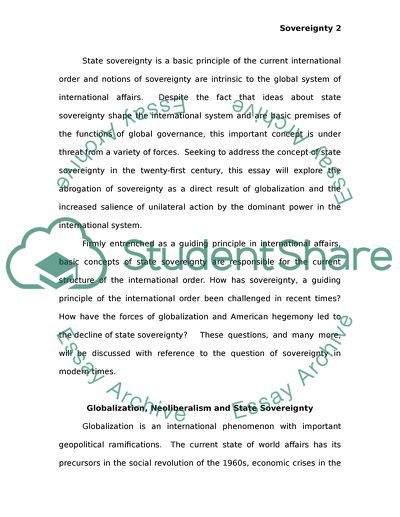Cite this document
(Sovereignty Is a Legal Fiction Coursework Example | Topics and Well Written Essays - 3000 words, n.d.)
Sovereignty Is a Legal Fiction Coursework Example | Topics and Well Written Essays - 3000 words. Retrieved from https://studentshare.org/politics/1720044-sovereignty-is-a-legal-fiction-discuss
Sovereignty Is a Legal Fiction Coursework Example | Topics and Well Written Essays - 3000 words. Retrieved from https://studentshare.org/politics/1720044-sovereignty-is-a-legal-fiction-discuss
(Sovereignty Is a Legal Fiction Coursework Example | Topics and Well Written Essays - 3000 Words)
Sovereignty Is a Legal Fiction Coursework Example | Topics and Well Written Essays - 3000 Words. https://studentshare.org/politics/1720044-sovereignty-is-a-legal-fiction-discuss.
Sovereignty Is a Legal Fiction Coursework Example | Topics and Well Written Essays - 3000 Words. https://studentshare.org/politics/1720044-sovereignty-is-a-legal-fiction-discuss.
“Sovereignty Is a Legal Fiction Coursework Example | Topics and Well Written Essays - 3000 Words”, n.d. https://studentshare.org/politics/1720044-sovereignty-is-a-legal-fiction-discuss.


